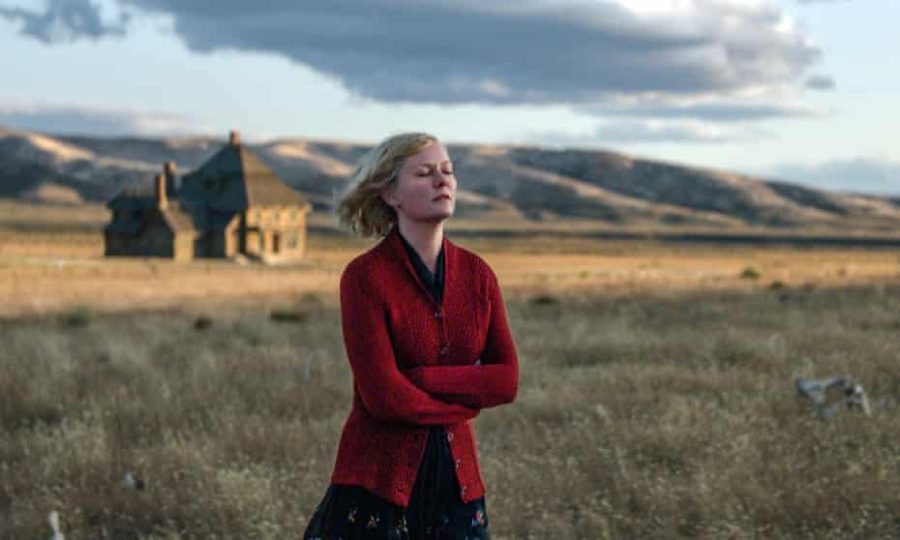Jane Campion’s ‘The Power of the Dog’ is a Muted Study of Masculinity and Psychological Warfare
December 15, 2021
Throughout “The Power of the Dog” Phil Burbank (Benedict Cumberbatch), a brutal and sadistic cattle rancher, can often be found standing behind his barn and staring at the mountains of the Montana wilderness. At one point in the movie, ranch hands saunter over and question him about what exactly he’s looking at. “There is something there, right?” “Not if you ain’t see it, there ain’t,” Phil answers slyly.
Looking Deeper
Jane Campion’s adaptation of the 1967 novel “The Power of the Dog” is an elusive and mysterious piece. In a way, the watching of the movie mimics the staring at a Montana mountain range from a distance. At first, it is difficult to make out the different formations, foliage and wildlife, but the longer you stare the more shapes reveal themselves and come into focus. Jane Campion directs with an icy precision that trusts in the audience’s intelligence and rewards their patience. The movie is a meticulous puzzle box, slowly unraveling as though the story was a secret that’s unwilling to come out.
In 1925, brothers Phil and George Burbank (Jesse Plemons), wealthy owners of an isolated ranch, meet the widowed owner of an inn, Rose Gordon (Kirsten Dunst), and her son Peter (Kodi Smit-McPhee), a gawky and serious teenager, during a cattle drive. Phil takes one look at the paper flowers on the table and vulgarly insults the manhood of Peter who made them. The timid and gentlemanly George takes a shine to Rose, and the two quickly marry. Real-life couple Dunst and Plemons have a tender and refined chemistry that bring moments of warm beauty to the barren land of “The Power of the Dog.” When Rose and Peter move onto the ranch, Phil reacts with jealousy and resentment and launches a siege of terror on the mother and son.
Coming Into Focus
Moments of “The Power of the Dog” play out as though it was a horror movie. In the vein of Alfred Hitchcock and Patricia Highsmith, Campion slowly tightens the screws with unsettling details and an oppressively menacing mood. As the characters move around the large mansion, wandering as they were trapped in the Overlook Hotel, you feel the freezing cold air.
The dialogue is spare and restrained, with Campion using visual cues and Jonny Greenwood’s haunting score to illustrate the savage violence of the psychological warfare that the characters wage. It’s a movie that creeps up with you and lingers long after the closing credits have begun.








